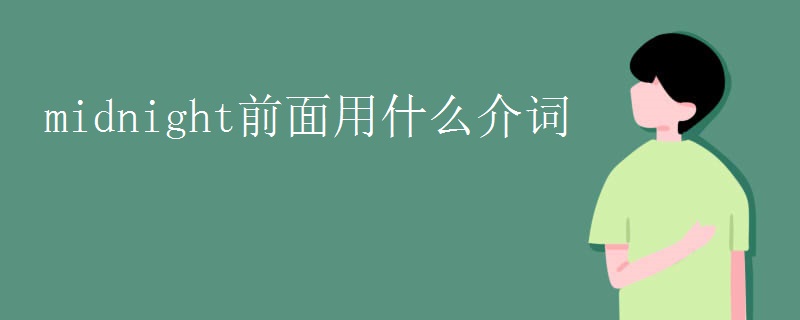介词是初中英语常考的知识点,下面就和小编一起了解一下,供大家参考。

1.动词+for
a)动词+for
account for解释;说明, answer for对…负责,apply for申请;请求,apologize for为…而道歉
beg for请求, call for要求,care for在意, enter for报名参加, fight for为…而战, hope for希望
inquire for查询;求见, leave for离开某地到另一地, look for寻找, long for盼望,mistake for误认为
plan for计划做某事, prepare for为…作准备,provide for为…提供, reach for伸手去拿, run for竞选
stand for象征,search for搜寻, send for派人去请, speak for陈述意见、愿望, take for当作, wish for希望
wait for等待。
b)动词+sb.+ for +sth.
ask for要求得到,blame for因…责备, excuse for宽恕, forgive for谅解, pardon for原谅,pay for花钱买
praise for称赞, punish for对…进行惩罚,push for催逼,reward for酬谢, thank for对…表示谢意。
2. be +形容词+for
be anxious for急于做, be eager for渴望, be bad for有害于,be convenient for便于, be good for利于
be famous for以…出名,be fit for适合于, be grateful for对…心存感激, be impatient for对…不耐烦
be late for迟到, be necessary for有必要, be ready for作好准备,be sorry for为…而后悔
be responsible for对…负责,be suitable for适合于, be unfit for不适合, be useful for对…有作用。
3.for+名词构成的词组
for all尽管,for a song非常便宜地,for certain确切地,for company陪着,for ever永远,for example例如
for fear以免,for fair肯定地,for free免费,for fun为了好玩,for good永远,for instance比方,for luck祝福
for life终身,for long长久,for nothing白白地,for once有生第一次,for oneself替自己,for pleasure为了消遣
for reason因为…理由,for sale供出售,for shame真不害臊,for short简称,for sport好玩,for sure确切地。
4.动词+副词/名词+for构成的短语
be in for将遇到,make up for弥补,go in for从事,look out for提防,take sth. for granted把…当作理所当然
have an ear for音感好,have a gift for有某方面的天赋。
1. in 表示在某地范围之内。
如:Shanghai is/lies in the east of China.上海在中国的东部。
2. to 表示在某地范围之外。
如:Japan is/lies to the east of China.日本位于中国的东面。
3. on 表示与某地相邻或接壤。
如:Mongolia is/lies on the north of China.蒙古国位于中国北边。
4. of成品仍可看出原料
如:This box is made of paper.这个盒子是纸做的。
5. from成品已看不出原料
如:Wine is made from grapes.葡萄酒是葡萄酿成的。
6. in 表示用某种材料或语言
如:Please fill in the form in pencil first.请先用铅笔填写这个表格。
7. about 指“关于”某人或某事物的较详细的情况
如:Can you tell me something about yourself?你能告诉我一些关于你自己的事情吗?
8. of指“内在的原因”,如病、饿等
如:The old man died of hunger.老人死于饥饿。
9. with 指生理上或情感上的由外界到内心的原因
如:Hearing the news, he jumped with joy.他们听到这个消息,欣喜若狂。
10.besides是包括后面所提人或物在内的“除……外,还”
如:Thirty students went to the cinema besides him.除他以外,还有30个学生去看了电影。(他和另外30人都去了)

可以加介词的,要看在具体句子里的意思,比如:on that day.在那一天。例句:Suppose flights are fully bo...

当there作副词时,不能加介词,因为副词前面不能加介词。当它是名词时可以。但是there很少作为名词用。there,主要用作副词、名词、感...

介词to是有意义的,经常表示“向”、“往”、“直到……为止”、“给”、“对于”、“按”、“比”,既可以指时间、方向、距离、对象或结果,又可以...

是不是介词关键还是看是否连接一个完整句子,当after后面连接的是一个完整句子(至少有主谓)的时候,就是做连词。当after后面连接的是一个...

1.在午夜,用介词:at;2.午夜前,用介词:before;3.午夜后,用介词:after,beyond;4.一直到午夜,用介词:until...

大的地方用in,例如在某个国家:in Chinese;在某个省:in guangdong province.小地方用at,例如在学校:at ...

不需要加介词。在this、that、next、last、every、yesterday、tomorrow等构成的时间状语前不加任何介词。

介词across.cross,名词、动词、形容词,作名词时意为“交叉,十字;十字架,十字形物”,作动词时意为“交叉;杂交;横过;渡过;使相交...